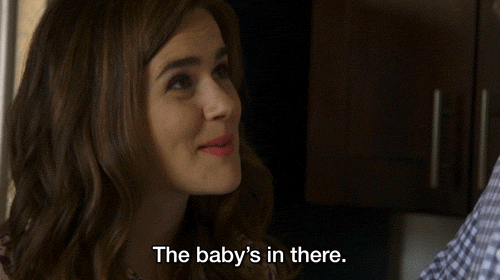Assalamualaikum,
Disclaimer: This post is just a SHARING note. Of course, it won't be too detailed or complete because parenting is not just theory, but ongoing practice. I'm not a parent myself but I hope by writing this, it'd be beneficial for me in the future and for those who are reading :)
Last Wednesday, I attended a talk at IIUM on parenting. It was so fruitful and enlightening. Luckily the participants are mostly singles (so I feel belong hahah!). Only 10% are married. I guess the target audience are single guys and ladies because it's a talk for students.
I'll summarise the points of the talk here.
WHAT DOES IT MEANT TO BE A PARENT?
To be a parent, we need to equip ourselves with multi skills. It's not only about having a baby and we automatically become the mom and dad and equipped with the skills. Parenting skills is a psychological process of understanding ourselves, our spouse and children. It's an ongoing process and Dr. said that we should start long before we get marry (So singles out there, let us learn and start improving ourselves. Reminder to myself, especially huhu).
PARENTING STYLES
For psychology students who took the parenting course might be familiar with these four styles of parenting. Basically, parenting styles based on two dimensions of parenting behaviour:
Demandingness and Responsiveness
:max_bytes(150000):strip_icc():format(webp)/1095045-article-types-of-parenting-styles-5a7cb6aaa18d9e00362ef5eb.png) |
| Source: Verywell Family |
Source: Pinterest
[Personally, I believe that it's definitely challenging to be consistent in parenting styles. No one is perfect to practice but what's important is progression. It takes a village to raise children. So, let us all do our part :)]
WHEN DO WE KNOW WE ARE READY TO HAVE A CHILD?
The cliche answer for this: There's no specific or right time for everyone. It's like you ask about readiness for marriage, further study, or anything important in your life. When is the right time?
But Dr. Abd Rahman said, ask ourselves these questions:
1) Am I in a good place in life?
2) Am I ready for trade-off?
Being a parent is a HUGE decision. So, we need to have a time-frame to decide to have a child.
Being a parents is about division of labor: who's going to take care of the baby? (is it only a responsibility of one parent or both? How do you divide the "job"?)
Pregnancy and parenthood is on-the-job-training. No matter how many books you read, when you have a child, it's a whole new thing. It's a practice to be better day by day and it's a lifelong journey.
SIGN THAT WE ARE READY
Dr. Abdul Rahman provided some signs to know if we are ready. Here are the list:
1) SACRIFICE: when we are willing to sacrifice for other people and not selfish, it's a good sign. This is important especially in the time of emergency
2) CAPACITY TO LOVE: this is subjective. We need to check ourselves.
3) SELF-CARE: eventhough we sacrifice for other people, we know when to treat ourselves well. De-stress ourselves with things that make us happy and relax. To take care of others, we need to take care of ourselves as well :)
4) SUPPORT SYSTEM: we have good support system or if not, we create one for ourselves because parenting is challenging.
5) OPEN TO LEARN, CHANGE & GROW: we are willing to learn and improve ourselves. We don't stay stagnant. We are willing to learn from anyone including our children.
6) RESPONSIBLE: we are willing to take the responsibility. We look into our attitude, words, decisions because we know children will indirectly learn from us.
source: image gif
PREGNANCY
Pregnancy is a tough phase for most women. Therefore, we need to make preparations in term of physical, emotional, psychological and spiritual. Dr. Faizah said that this needs to start long before we get pregnant. Basic things like balanced diet, exercising, seeking for knowledge, etc. should be taken into consideration from now.
During pregnancy:
1st trimester : mostly we feel weak and lack of motivation to do exercise (this is the reason we should practice from now. huhu 😓) Take enough proteins, carbohydrates, fruits and vegetables
2nd and 3rd trimester: generally, women gain more energy. Can do exercise and cardio training but appropriate to the pregnant women.
The process of delivery is like being in a war. So, we need to have good stamina.
ROLE OF HUSBAND DURING PREGNANCY
1) Support your wife. Accompany her. During pregnancy, there's hormonal imbalance and your wife might have difficult time to adjust her ups and downs mood. Be supportive.
2) Invite conversation. Touch your wife lovingly to release good hormones (oxytocin) which helps to make your wife feels good and relax.
3) Participate in activities (household chores)
4) Be patient with your wife's mood swings
5) Read and collect information about pregnancy and parenting
6) Prepare for delivery day. All the baby's stuffs put inside one bag. So, when emergency, you won't be panicking
7) Stay calm and help your wife during labor process
8) Stay with wife during emergency
source: GIFER
CAN HUSBAND EXPERIENCE SIMILAR SYMPTOMS WHEN WIFE GOT PREGNANT?
Have you ever heard of husband who experience pregnancy symptoms (morning sickness, dizziness, craving,etc.)? It is called as Couvade syndrome.
Couvade syndrome is a psychosomatic condition in which the spouse or partner of a pregnant woman experiences symptoms of childbirth or pregnancy.
THEORIES EXPLAINING THE PHENOMENON
Psychological: anxiety of ambivalency to become new father
Envy: Parturition envy. Wife can pregnant but husband can't so he wants to feel it
Oedipus complex: Father competing with the baby to gain the wife's attention
Be supportive towards the husband as well. They might also experience post-partum depression and labor pain.
IS CONFINEMENT NECESSARY?
Confinement is actually a resting period, not the prohibition or restriction from any food or activities. The practice is differ between culture. The aim is to keep the mom and baby healthy. So, we need to know what we should be followed or not.
POST-PARTUM DEPRESSION
After the delivery, mom has a difficult time to adjust, especially for the first-timer. It's a tiring and demanding process. Around 8-10% women suffer from post-partum depression.
Biological cause : Hormonal imbalance (estrogen), family history of depression, etc.
Environmental cause : Breastfeed requires lot of efforts, lose sleep, attention shifts to baby, low support, confinements is not done appropriately
HOW TO PREVENT?
1) Be alert: Identify early sign of depression.
Sleep disturbance, lose appetite, no interest with the baby, hopelessness, lethargic.
Post-partum blues is normal, but if it persists, be alert!
2) Get help from doctors : Early intervention and medication is important
ADVICE TO SINGLES
1) Read a lot, ask a lot, participate in discussion
2) Get psychologist to advise you
3) Parenting is a long and continuous process. Learn and grow.
4) Be brave to admit mistakes and improve
5) We are never ready to actually be ready
6) We can never be a perfect parent but being a good parent is good enough.
Book suggestion by the Dr.s
That's it.
Thanks for reading. Hope it would be beneficial :)





